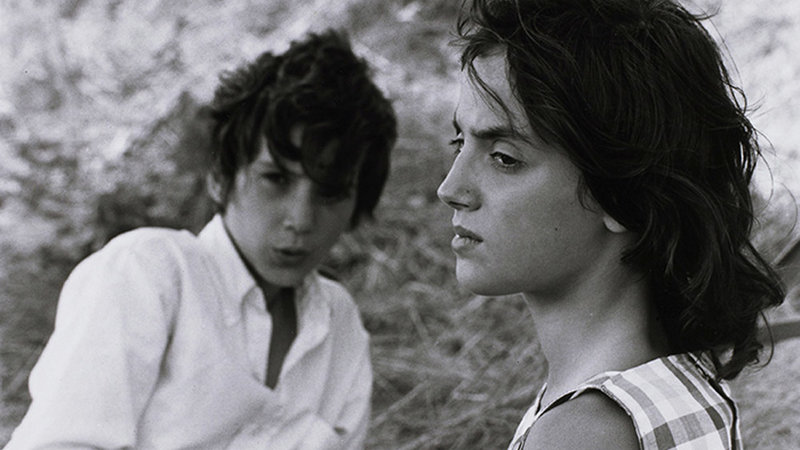
Screened as part of NZIFF 2002
Mes petites amoureuses 1974
My Little Love Affairs
"Not to be missed… Abandoning Paris bohemia, Eustache returned to the two small working-class towns where he grew up to make a memory piece about a 12-year-old’s first sexual explorations and his painful discovery that the adults who have the most power over him do not have his best interests at heart. Lyrically photographed by Néstor Almendros, and wonderfully acted by Martin Loeb (who plays Daniel, Eustache’s childhood alter ego) and several other adolescent performers, Mes petites amoureuses lovingly details rituals of courtship and friendship. Daniel is a budding film buff, an unusually self-contained boy with observing eyes that give almost nothing of himself away. In one achingly precise scene, Daniel turns his attention from the screen (the film is that Cahiers du cinéma favorite Pandora and the Flying Dutchman, starring Ava Gardner) to the kids near him who are engaged in a solemn ritual that involves a boy leaning into the next row and kissing the girl in front of him. Having observed a few of these intense, impersonal embraces, Daniel tries out the procedure himself. The most subtle of eye-openers, Mes petites amoureuses is a far more rigorous coming-of-age film than The 400 Blows." — Amy Taubin, Village Voice
"After jumping from regionalist documentaries to the most auteurist Parisian fiction ever created, Eustache returned to the provincial chronicle, centered on a more or less average child. Four years before he actually shot the film he told me that he wanted to reconstruct his childhood: every wall section, every tree, every power pole. According to Eustache this was the only way to precisely render childhood impressions on film. Mes petites amoureuses is very successful in the way that it brings certain French rituals to light – for Eustache, the very core of his work. In this case, it’s the rites of adolescent courtship: traditional places for flirtation during walks, the repertoire of romantic moves made by boys and girls, and the distances maintained between them, first kisses… Shot on 35mm colour stock (as opposed to the 16mm black-and-white of The Mother and the Whore), Mes petites amoureuses cost a lot more than its scandalous, marathon-length predecessor, and had only half as much an audience in France. Once again Eustache was forced to confine himself to medium-length films and shorts." — Luc Moullet, Film Comment